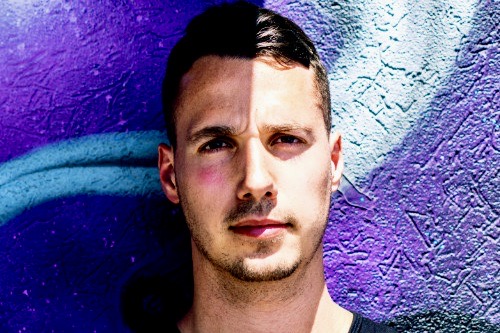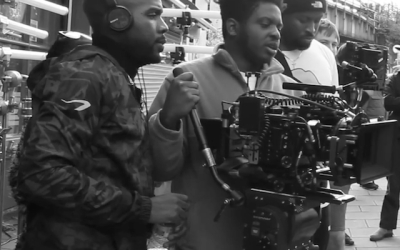Former NFL manager turned entrepreneur and investor, Reed Duchscher is the founder of digital-first talent agency Night Media. Based out of Dallas, Duchscher works with leading social influencers like Dude Perfect, MrBeast and Preston. He has shared valuable insights into the state of the creator-led economy in his comprehensive memo to creators.
With such a strong roster of talent, Duchscher is perfectly-placed to provide insights into the state of the creator-led economy. This is what he has just done via a comprehensive memo to creators. Initially sent to Night’s roster of talent, it was then published on Duchscher’s LinkedIn page ahead of this year’s VidCon event. For this week’s Download, The Drop team has summarised some of the powerful observations Duchscher makes about current conditions in this dynamic ecosystem:
Past, present and future
Looking back to 2022: Duchscher published a similar memo in 2022. He advised creators to prepare for an economic slowdown that would negatively impact marketing budgets. Duchscher was proved right. Fortunately, many creators took his advice to “improve operation abilities, tighten cash management and close upfront deals.” As such, they were able to weather the storm relatively well. This is in what has been a protracted slump.
The situation in H1 2023: According to Duchscher, CPMs on YouTube across Night creators have been down around 10% year on year. Some brands have also been cutting back on “direct creator deals.” Despite this, he remains bullish because “the sector is growing rapidly and is driven by immense consumer demand.” He is “cautiously optimistic” that the market would pick up in the second half of 2023.
The long-term prognosis: Duchscher is convinced “the big picture trend is in our favour. Over time, your channels will continue to become some of the most valuable media properties that exist. It’s important to remember the leverage you have.”
Duchscher’s key observations at mid-point 2023
Team-building exercise: In a sign of the digital first sector’s growing maturity, Duchscher says top digital content creators are doubling down on efforts to invest in teams and operations to increase leverage for their talent. “They treat their operation like a production business, not just a YouTube of Twitch channel.” The journey will vary by company – but the core message is that recruiting for growth has become a priority.
YouTube long-form remains the one to beat: Duchscher is unequivocal: YouTube remains “the best platform through which to build a brand and company”. Long-form views on YouTube “hold way more value that short-form views on any platform. Despite the emphasis on Shorts, the money and community building opportunity remains in long-form.” Duchscher stresses that other platforms/formats have a role to play in a creator’s platform mix, “but YouTube is the centrepiece.”
Data analytics is a vital to creator success: It stands to reason that creators need to be creative, but Duchscher says top players are “paying attention to the relationship between content and data”. Being a great creator means obsessing over how to drive a thumbnail click, hook and retain and audience through compelling storytelling and utilising data to improve this craft. “It is crucial to be a student of your data”, he says.
TikTok is a minefield for creators: Duchscher sees “meaningful opportunities” on TikTok but warns that regulation and a constantly changing algorithm make it a tough platform for building a sustainable business. He says the regulatory threat is likely to grow as the US Presidential election approaches in 2024. He also notes that TikTok’s shift towards specific niches has led to “a decline in the influence of its first generation of stars”. The message? Don’t become over-reliant on the platform.
AI – not ‘if’ but ‘when’: AI has its sceptics and refusniks but Duchscher isn’t one of them. He “strongly encourages creators to explore the potential of AI in their content creation workflows”. By embracing AI-driven solutions, “creators can streamline their processes, unlock new creative possibilities, and increase productivity and output.”
Creators and consumer products: As the Drop observed a couple of weeks ago, top digital-first creators are starting to make waves in real-world products business. Duchscher sees a lot of upside in this area and urges creators to explore it further: “Some of the fast-growing brands in mass retail are now powered by creators,” he says – pointing to brands like Feastables, Prime, JuiceBox and Happy Dad. He argues that this trend will have “significant impact” on the consumer landscape. “Many multinational CPG brands have taken notice, and the rules are being written in real-time. Billionaire creators are emerging not just from their content but also from these CPG businesses.” Content, however, remains the foundation of such businesses.
Final Thought: a shift in the creator/platform power dynamic
Duchscher concludes with an intriguing observation about the growing power of creators vs platforms. He predicts “bigger and better opportunities” for talent, which could mean “a better seat at the table on current platforms or choosing alternative platforms that might be a better fit”. Duchscher says this is already evident in pushback against platforms like Twitch and Reddit, “spawning upstart alternatives like Kick and mass protests from moderators on Reddit”. He argues that the existing power balance is shifting away from platforms to “the creators who make them go round”.
*All insights courtesy of Reed Duchscher’s memo to creators





